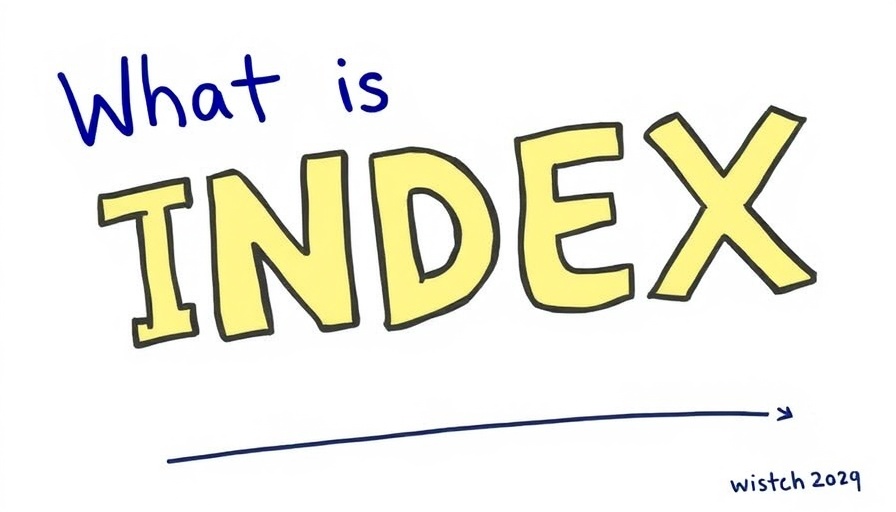
Understanding Index Bloat: An Overview
In the labyrinth of SEO, one term that often perplexes even seasoned marketers is index bloat. Defined as the overwhelming presence of low-quality pages that dilute the effectiveness of a website's indexing, index bloat chiefly affects medium to large sites. Consequently, it complicates a search engine's task of identifying valuable content. For any website owner, especially those running extensive e-commerce platforms or content-heavy sites, addressing index bloat is paramount to optimizing their search engine visibility.
What Causes Index Bloat?
Several factors contribute to index bloat. Common culprits include:
Thin Content: Pages lacking substantial content often get indexed, despite providing little to no value.
Duplicate Content: Identical or nearly identical pages create clutter, as search engines can struggle to determine which page to rank.
Faceted Navigation: E-commerce sites often generate numerous URL variations based on filters, leading to multiple nearly-duplicate pages in indexes.
Media Pages: Excessive low-value image or video galleries can also contribute to bloating.
Tag and Archive Pages: These organizational pages can often provide little unique value and clutter your index.
These factors not only waste indexing resources but can severely impact a site's overall ranking and visibility.
The Impact of Index Bloat on SEO Performance
Google allocates a specific crawl budget to each site, which is the number of pages that can be indexed in a set timeframe. With index bloat, low-quality pages consume this crawl budget, resulting in higher-quality content being overlooked. Consequently, this can impair rankings, lead to decreased traffic, and lower conversion rates. A bloated index often results in poor click-through rates (CTR) since users must sift through irrelevant content to find what they’re looking for.
Identifying Index Bloat on Your Site
To begin such an assessment, analyze your indexed pages using Google Search Console. Key steps include:
Reviewing the Index Coverage Report for the total number of indexed pages.
Comparing valid pages against those listed in your sitemap to spot discrepancies indicating bloating.
Monitoring unexpected spikes in crawl activity, which may suggest excessive crawling of low-quality pages.
By following these steps, you can gain crucial insights into your website's index health and recognize where action is required.
Effective Solutions to Combat Index Bloat
Finally, addressing index bloat involves a systematic approach. Here are six proven methods to tackle this issue:
1. Conduct an Index Audit
Utilize Google Search Console and Analytics to categorize your indexed pages. Identify cornerstone content that drives traffic, fluffy pages for enhancement, and outdated content for pruning.
2. Enhance Quality
For pages that show potential but lack optimization, consider improving their content and relevancy to fetch more traffic. This could involve updating outdated information or ensuring better technical SEO practices are in place.
3. Consolidate Duplicate Content
If you find multiple pages with similar content, consider consolidating them into one authoritative page. You can preserve link equity through canonical tags or 301 redirects.
4. Remove Internal Links to Low-Quality Pages
Adjust your internal linking strategy to direct traffic away from less valuable pages and towards content that matters. This action will optimize your site’s overall navigation within search engines.
5. Adjust HTTP Status Codes
For pages that lack value, applying the 410 status code can signal to crawlers that the page has been permanently removed, prompting more efficient indexing processes.
6. Control Crawl Behavior through Robots.txt
Ensure that your robots.txt file correctly indicates which pages should not be indexed, preserving your valuable crawl budget for more effective pages.
The Takeaway: Prioritizing Quality Over Quantity
Ultimately, addressing index bloat is not merely about reducing the number of indexed pages; it’s about prioritizing quality content that ensures your site performs optimally in search. If you’re looking for ways to enhance your SEO strategies further, considering how local SEO factors into your overall visibility can also be beneficial.
In an age where content is abundant, maintaining high-quality, relevant pages is the key to standing out in search engine results. Actively monitoring and correcting index bloating where it occurs will not just optimize your current traffic but could lead to sustained increases in your site’s overall ranking and conversion rates.
 Add Row
Add Row  Add
Add 




 Add Row
Add Row  Add
Add 

Write A Comment